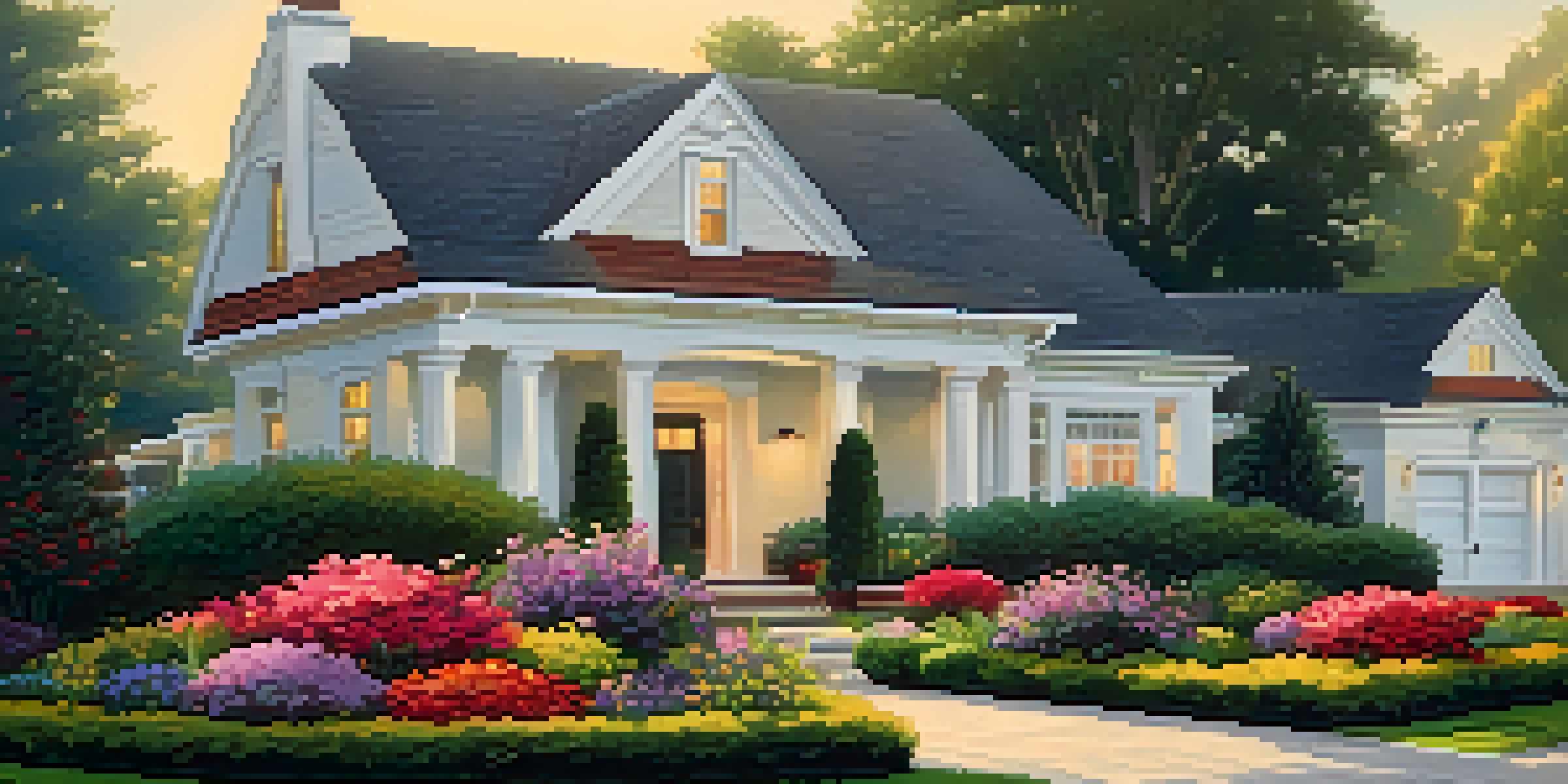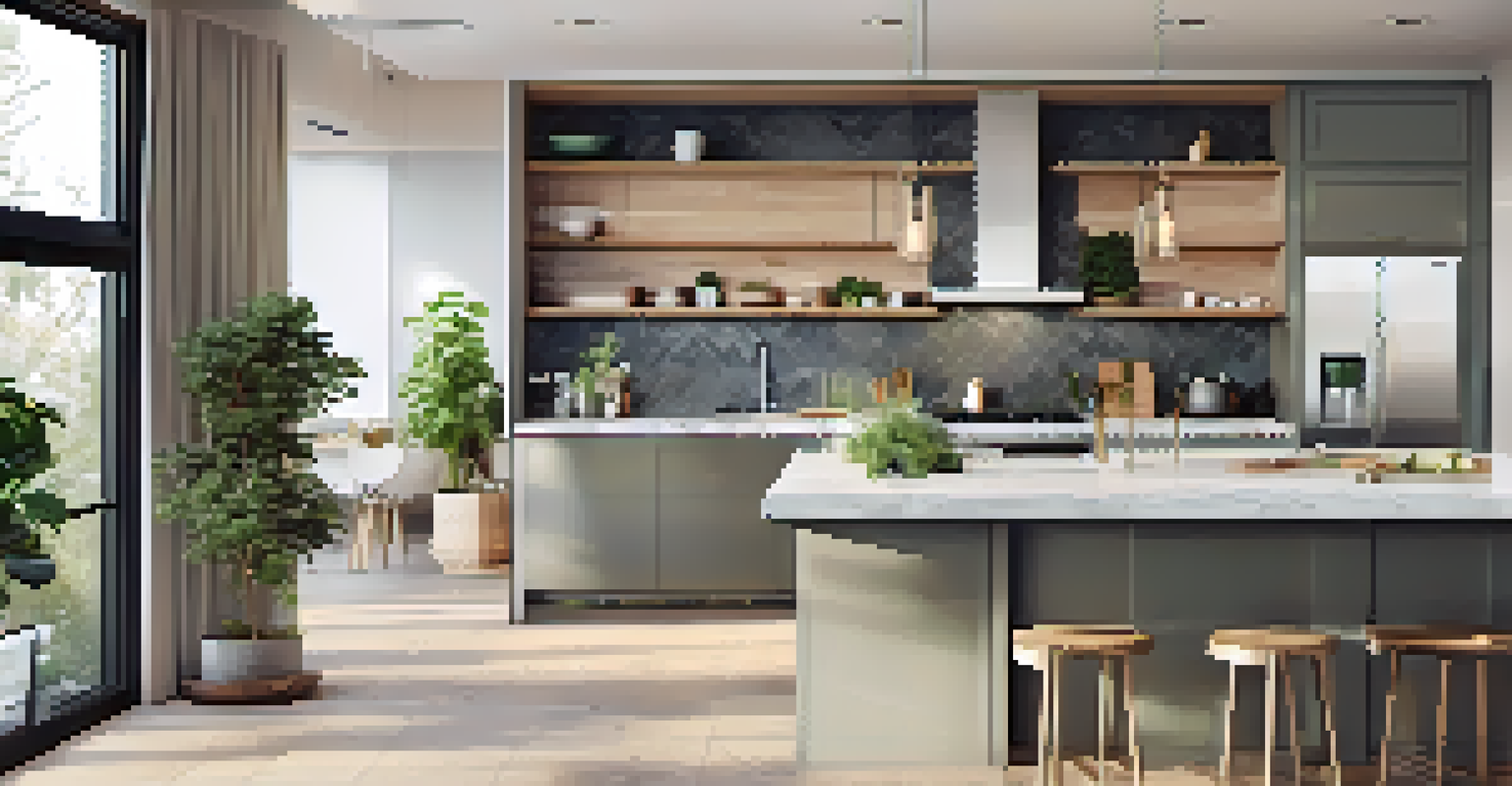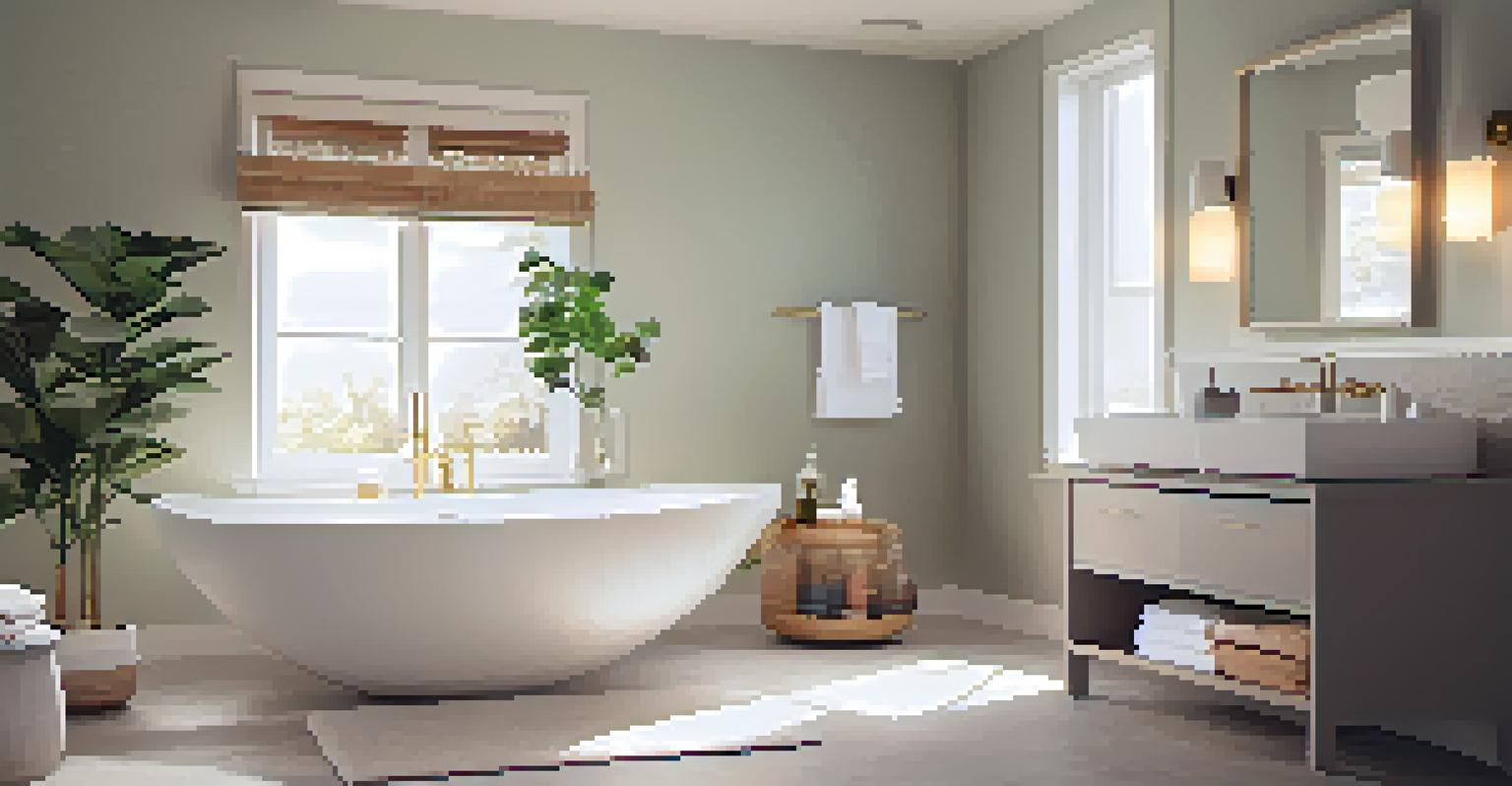Upgrading Your Home: A Guide to Increasing Value

Understanding the Importance of Home Upgrades
Upgrading your home isn't just about aesthetics; it’s a strategic move to increase its market value. Just like a fresh coat of paint can uplift your mood, the right renovations can elevate your home's worth significantly. Many homeowners underestimate the impact of small changes, thinking only major renovations matter. However, even simple upgrades can make your home more appealing to potential buyers.
The best investment on Earth is earth.
Consider this: a well-maintained garden can be the cherry on top during a home tour. Buyers often visualize their future lives in your space, and a flourishing garden can help them do just that. Imagine walking into a home with a vibrant outdoor space versus one that feels neglected; the former naturally draws more interest.
Ultimately, understanding the value of upgrades is the first step in your journey. By recognizing that these enhancements can lead to a significant return on investment, you can approach your home improvement projects with purpose and excitement.
Budgeting for Home Improvements: Know Your Limits
Before you dive into renovations, it’s essential to outline a budget. Think of your budget as the foundation of a sturdy home; without it, everything else may crumble. Analyze your finances and determine how much you can comfortably allocate to upgrades without straining your resources.

A good rule of thumb is to invest about 10-15% of your home's value in upgrades. For instance, if your home is worth $300,000, consider allocating $30,000 for improvements. This approach not only helps ensure you don’t overspend but also increases the likelihood of a higher return on your investment.
Home Upgrades Boost Market Value
Strategic renovations, even small ones, can significantly enhance your home's appeal and market value.
Remember, budgeting also involves considering potential hidden costs. Always account for unexpected expenses, like discovering outdated wiring during a renovation, which can be both an inconvenience and a financial surprise.
Curb Appeal: First Impressions Matter
Curb appeal serves as the welcoming handshake of your home, inviting potential buyers in. The exterior of your home is the first thing people see, so making a good impression is crucial. Simple upgrades, like fresh landscaping, a new mailbox, or a well-painted front door, can transform your home’s appearance significantly.
Home is the nicest word there is.
Picture driving through a neighborhood where some homes are well-kept and others appear worn down; the latter often get overlooked. Investing a little time and money into your home's exterior can lead to a quicker sale down the line. This is especially true in competitive markets where every detail counts.
Ultimately, enhancing your curb appeal not only benefits your home's value but also creates a sense of pride in ownership. It’s about making your home a place you love returning to every day.
Kitchen Upgrades: The Heart of the Home
When it comes to home upgrades, the kitchen often takes center stage. A modern, functional kitchen not only enhances your cooking experience but can significantly boost your home's value. Think of it as the heart of your home; a lively, updated kitchen can attract more buyers and encourage them to envision their culinary adventures.
Consider updating appliances to energy-efficient models, which can save money in the long run. A stylish backsplash or new countertops can also work wonders in transforming the space. These upgrades don’t have to break the bank; even small changes can make a big impact.
Budgeting is Key for Renovations
Establishing a clear budget helps ensure you invest wisely in home improvements without financial strain.
Investing in your kitchen can yield one of the highest returns on investment. With so many buyers prioritizing this space, it’s wise to make it as inviting and functional as possible.
Bathroom Renovations: Small Changes, Big Impact
Bathrooms may be small, but their impact on home value is anything but minor. A clean, updated bathroom often seals the deal for potential buyers. Simple upgrades, like replacing outdated fixtures, adding a fresh coat of paint, or installing new tiles, can create a more inviting atmosphere.
Think about it: a spa-like bathroom can be quite alluring. Features like modern vanities, improved lighting, and even heated floors can elevate the space dramatically. These small changes can turn a mundane bathroom into a luxurious retreat.
Investing in your bathrooms not only enhances their functionality but also makes your home more appealing to buyers. A little effort can go a long way in ensuring your home stands out in the market.
Maximizing Space: The Value of Open Concepts
In today’s real estate market, open-concept layouts are highly sought after. They promote a sense of space and flow, making homes feel larger and more inviting. If your home has a cramped layout, consider removing non-load-bearing walls to create a more open atmosphere.
Imagine entertaining guests in a spacious living area where the kitchen and dining flow seamlessly together. This kind of layout encourages interaction and can be a significant selling point. Plus, open spaces allow for more natural light, which can uplift the entire ambiance of your home.
Energy Efficiency Attracts Buyers
Investing in energy-efficient upgrades not only appeals to environmentally conscious buyers but also saves on utility costs.
By maximizing space through open-concept designs, you can dramatically increase your home's value while also enhancing your daily living experience. It’s all about creating a home that feels as good as it looks.
Energy Efficiency: A Smart and Sustainable Upgrade
As energy costs rise, many buyers are looking for homes that offer energy efficiency. Investing in energy-efficient upgrades, such as new windows, insulation, or smart thermostats, not only makes your home more appealing but can also save you money on utility bills. Think of it as an eco-friendly way to boost your home’s value while contributing positively to the environment.
For example, replacing old windows with energy-efficient models can significantly reduce heating and cooling expenses. Similarly, installing solar panels may seem like a hefty investment upfront, but they can provide substantial savings in the long run, appealing to environmentally conscious buyers.

Incorporating energy-efficient solutions into your home upgrades can set you apart in a crowded market. It’s a win-win situation that benefits both your budget and the planet.